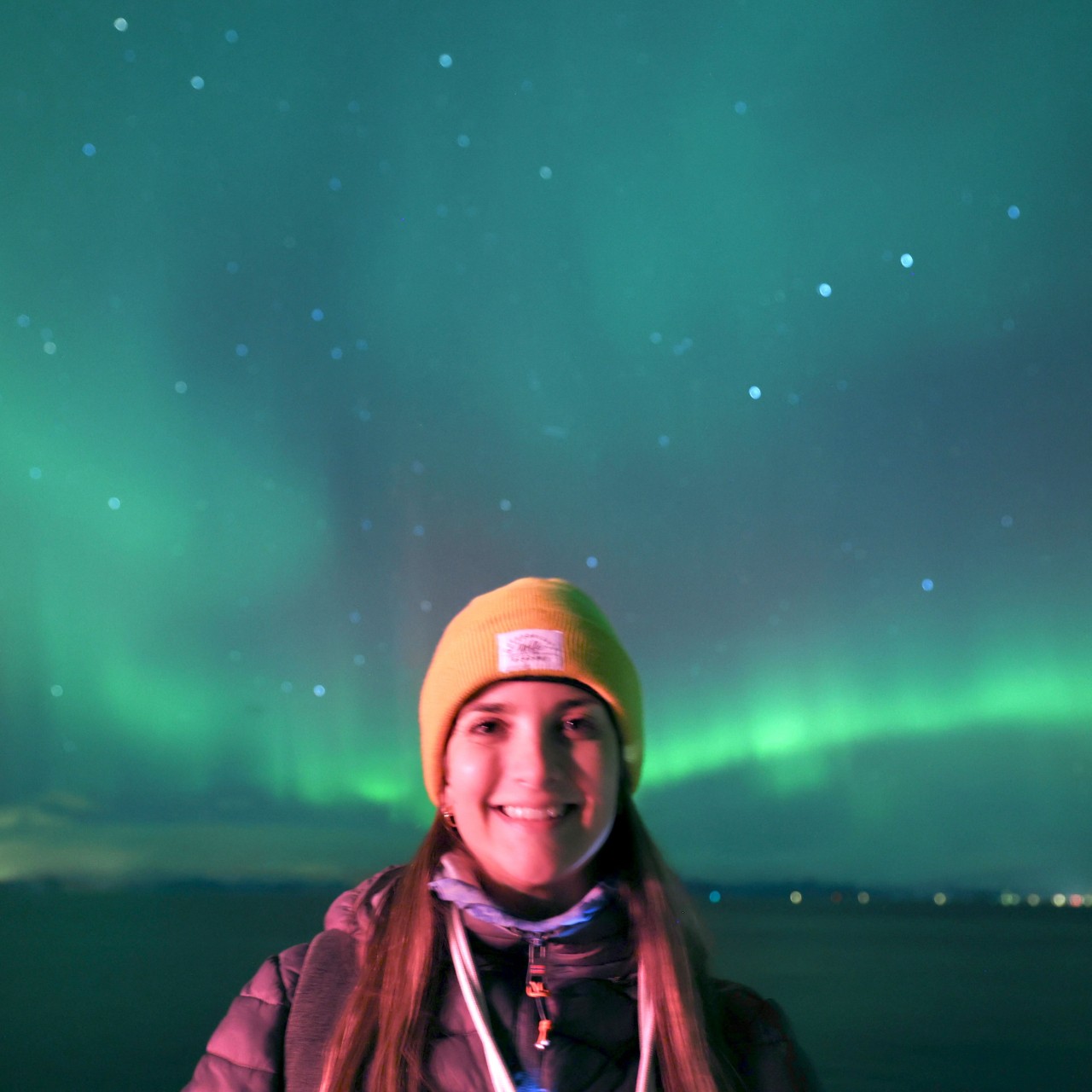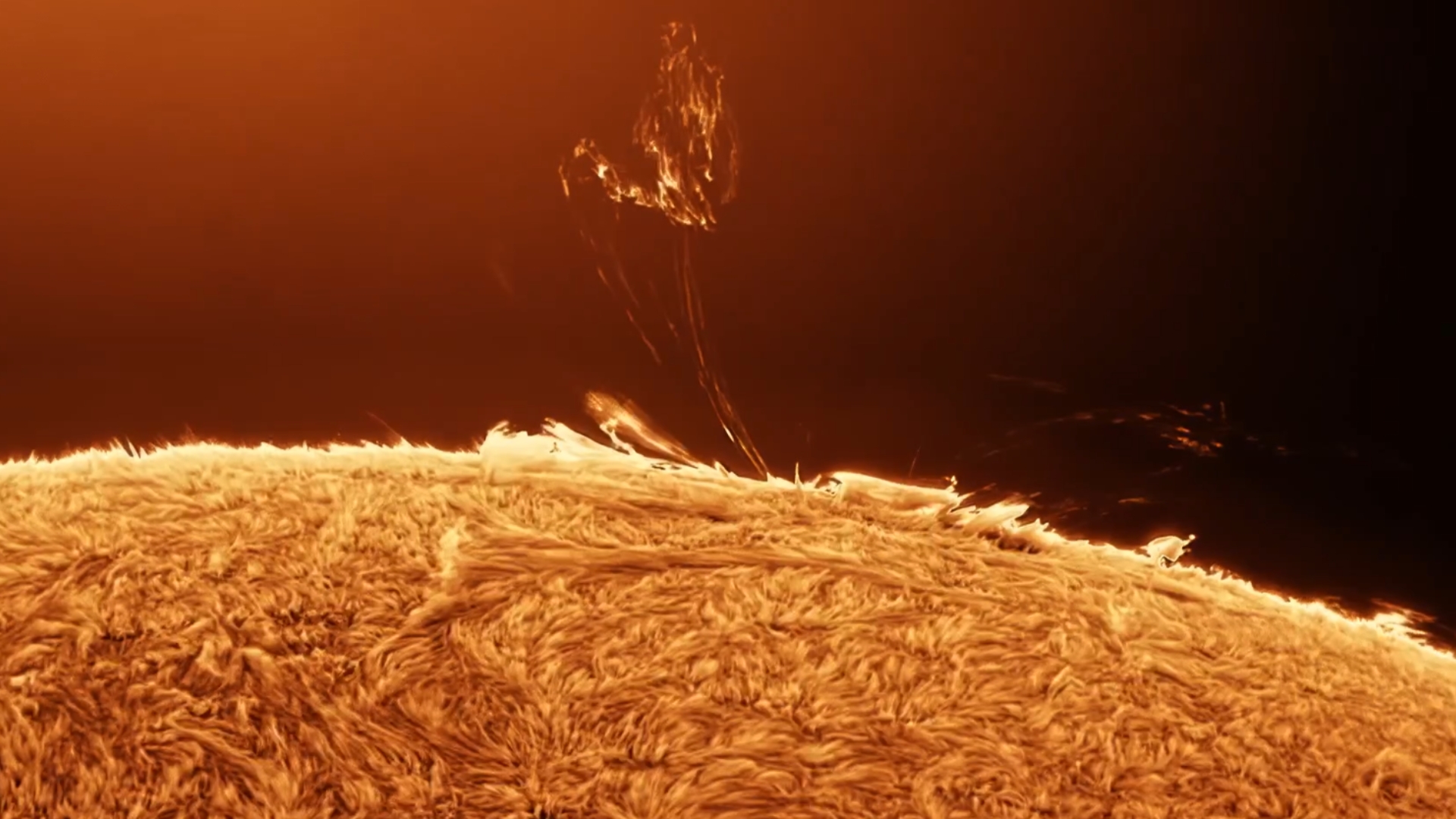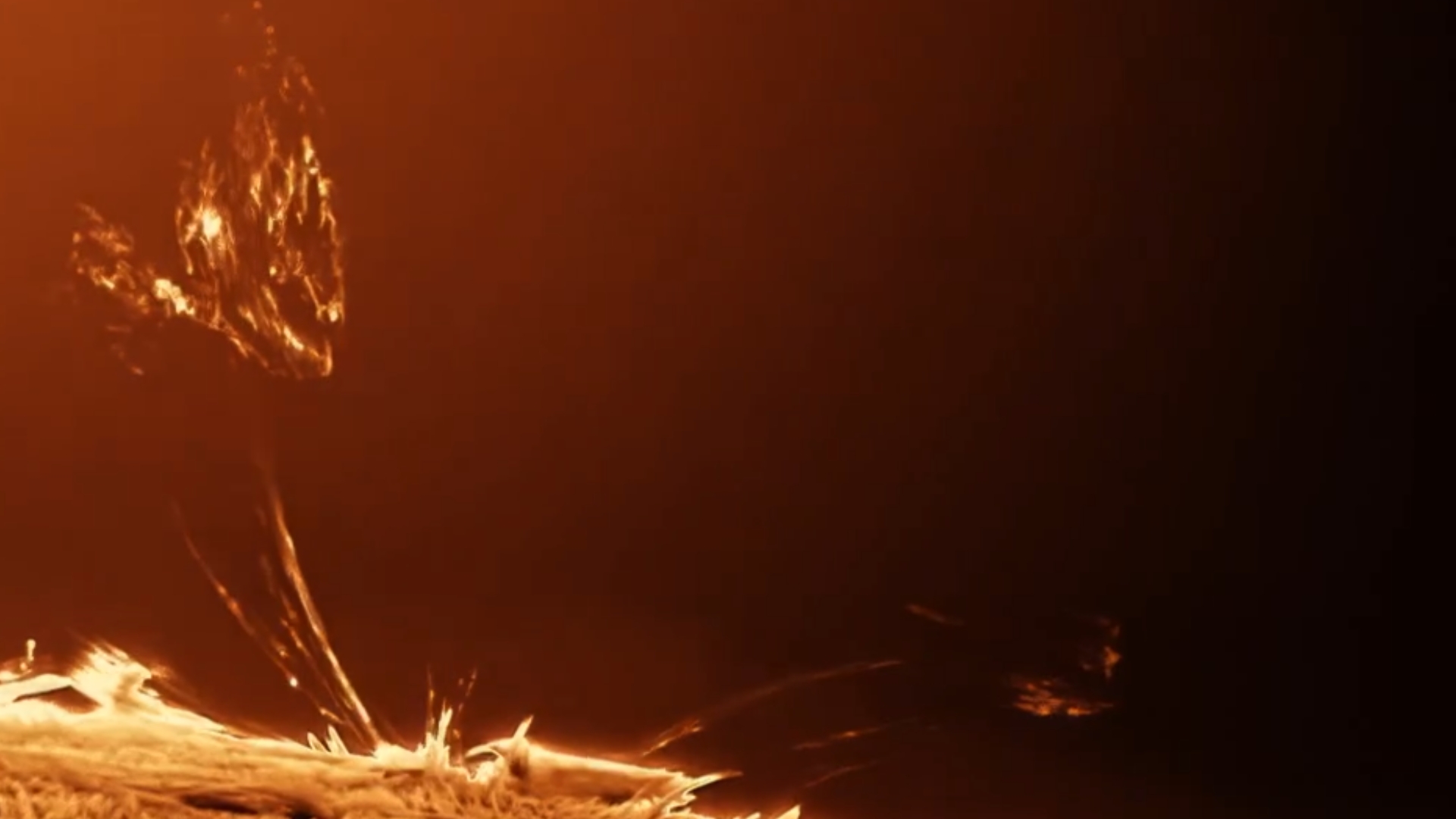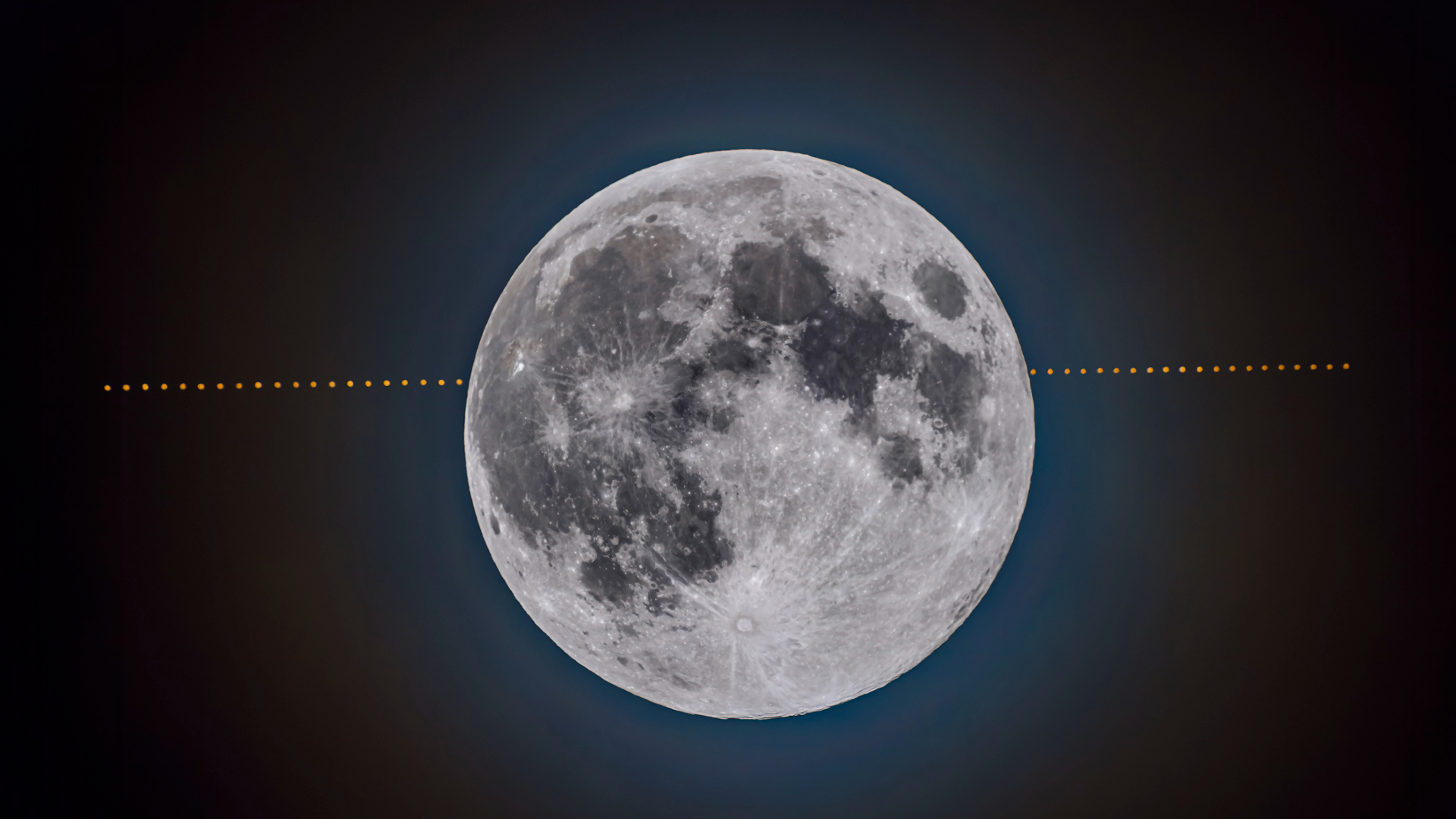Astrophotographer captures fiery plasma dancing above the sun in stunning close-up video
Astrophotographer Mark Johnstron captured a mesmerizing cloud of hydrogen plasma dancing above the sun's limb in this breathtaking video.
Astrophotographer Mark Johnston has captured a mesmerizing view of the sun, this time showing a cloud of hydrogen plasma twisting and dancing above the solar surface, suspended by powerful magnetic fields.
The incredible close-up, taken on Oct. 20, 2025, from Willow Springs Lake, Arizona, compresses 75 minutes of real-time solar activity into a hypnotic 6.5-second timelapse animation that's been looped. The extraordinary footage reveals a delicate, thread-like prominence as it hovers above the solar surface.
"The video shows a cloud of hydrogen plasma suspended above the sun's limb on magnetic fields," Johnston told Space.com. "I have a new upgrade on my solar etalon filter and when the seeing is good, I'm getting some fabulous results".
A solar prominence, also known as a solar filament when seen against the solar disk, is a large bright structure extending from the sun's surface. The red glowing material is plasma, a hot gas made of charged hydrogen and helium, which flows along twisted magnetic field lines generated by the sun's internal dynamo. When these magnetic structures become unstable, the prominence can erupt, hurling plasma out into space. They are anchored to the sun's photosphere and extend into its hot upper atmosphere, known as the corona. Prominences can form over about a day and can persist for weeks or even months, looping hundreds of thousands of miles into space, according to NASA.
To capture the footage, Johnston used a TEC160FL refractor equipped with a Baader Energy Rejection Filter, Baader 4ZS telecentric, Solar Spectrum 0.3Å hydrogen-alpha etalon, Lunt hydrogen-alpha etalon, and an ASI174M camera. The result is an astonishing level of detail, revealing the subtle motion of plasma as it interacts with the sun's dynamic magnetic environment.
Remember, viewing the sun without the right equipment can be dangerous. Never look directly at it with the naked eye or through a telescope unless you're using certified solar filters.
Breaking space news, the latest updates on rocket launches, skywatching events and more!

Daisy Dobrijevic joined Space.com in February 2022 having previously worked for our sister publication All About Space magazine as a staff writer. Before joining us, Daisy completed an editorial internship with the BBC Sky at Night Magazine and worked at the National Space Centre in Leicester, U.K., where she enjoyed communicating space science to the public. In 2021, Daisy completed a PhD in plant physiology and also holds a Master's in Environmental Science, she is currently based in Nottingham, U.K. Daisy is passionate about all things space, with a penchant for solar activity and space weather. She has a strong interest in astrotourism and loves nothing more than a good northern lights chase!
You must confirm your public display name before commenting
Please logout and then login again, you will then be prompted to enter your display name.


